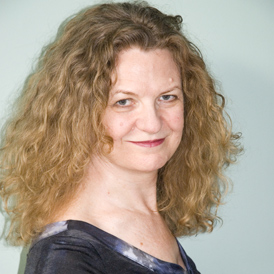A day on the stand at the Leveson inquiry
Writing for Channel 4 News, journalist Joan Smith reflects on her day giving evidence to the Leveson inquiry at the Royal Courts of Justice.

Now I know how actors feel before they go on stage. Waiting to give evidence at the Leveson inquiry was the most difficult moment of a long day, as I expect it will be for other witnesses this week.
There’s something unnerving about sitting in a hushed courtroom, knowing you’re on next, with the points you want to make running in an apparently endless loop in your head.
First you have to get into the courtroom, and it was a relief to leave behind all the photographers and camera crews who’d gathered to get pictures of alleged victims of phone hacking arriving at the Royal Courts of Justice in central London.
It’s a gothic warren of a place, and a curious setting for an inquiry which is hearing evidence about intense tabloid interest in the girlfriends of actors and footballers.
Fearful stillness
Of course the inquiry is also about ordinary people – I was going to say less well-known people, but that’s no longer the case for Bob and Sally Dowler.
The abduction and murder of their daughter Milly thrust them into the spotlight, and on Monday they talked in quiet but firm voices about the false hopes raised when Milly’s phone was hacked by someone working for the News of the World.
It was one of the few moments when the courtroom was completely silent, paralysed into an almost fearful stillness by the pathos of what we were hearing.
In Egypt, people are risking death because they believe in the freedom to express themselves.
The hacking of Milly’s phone led directly to the setting up of the Leveson inquiry so it seemed right that they should be the first victims to talk about their experience of tabloid intrusion.
Later in the day, Hugh Grant‘s evidence produced some dramatic moments as he disagreed with Robert Jay QC, counsel to the inquiry, about his interpretation of events and headlines.
Grant came over as wry, modest and funny, although he was also visibly annoyed about years of intrusion into his private life.
Censorship
When I gave evidence, I was encouraged to talk not just about seeing my personal details in Glenn Mulcaire’s notes – a chilling experience I’ll never forget – but about the importance of a free press.
That made the experience a little easier because this is something I care passionately about, and I don’t think for one moment that the Leveson inquiry is going to place unacceptable restrictions on the media.
I’ve spent years campaigning for free expression in countries where censorship is rife, talking to journalists who’ve been imprisoned and tortured because they tried to hold the powerful to account.
During the proceedings, I couldn’t help thinking about the latest demonstrations in Tahrir Square.
In Egypt, people are risking death because they believe in the freedom to express themselves, championing values that some sections of the British press seems to have forgotten.
That is what the Leveson inquiry is about, and so far it’s doing a very good job of establishing what’s gone wrong with the popular press. It’s about values as much as regulation, and that came across very strongly in the first day of witnesses’ evidence.
I think those brave Egyptian demonstrators might be puzzled by what’s emerging in a steady stream from court 73 of the Royal Courts of Justice; somehow, I don’t think they’re dying for the opportunity to publish pictures of Hugh Grant’s baby.
